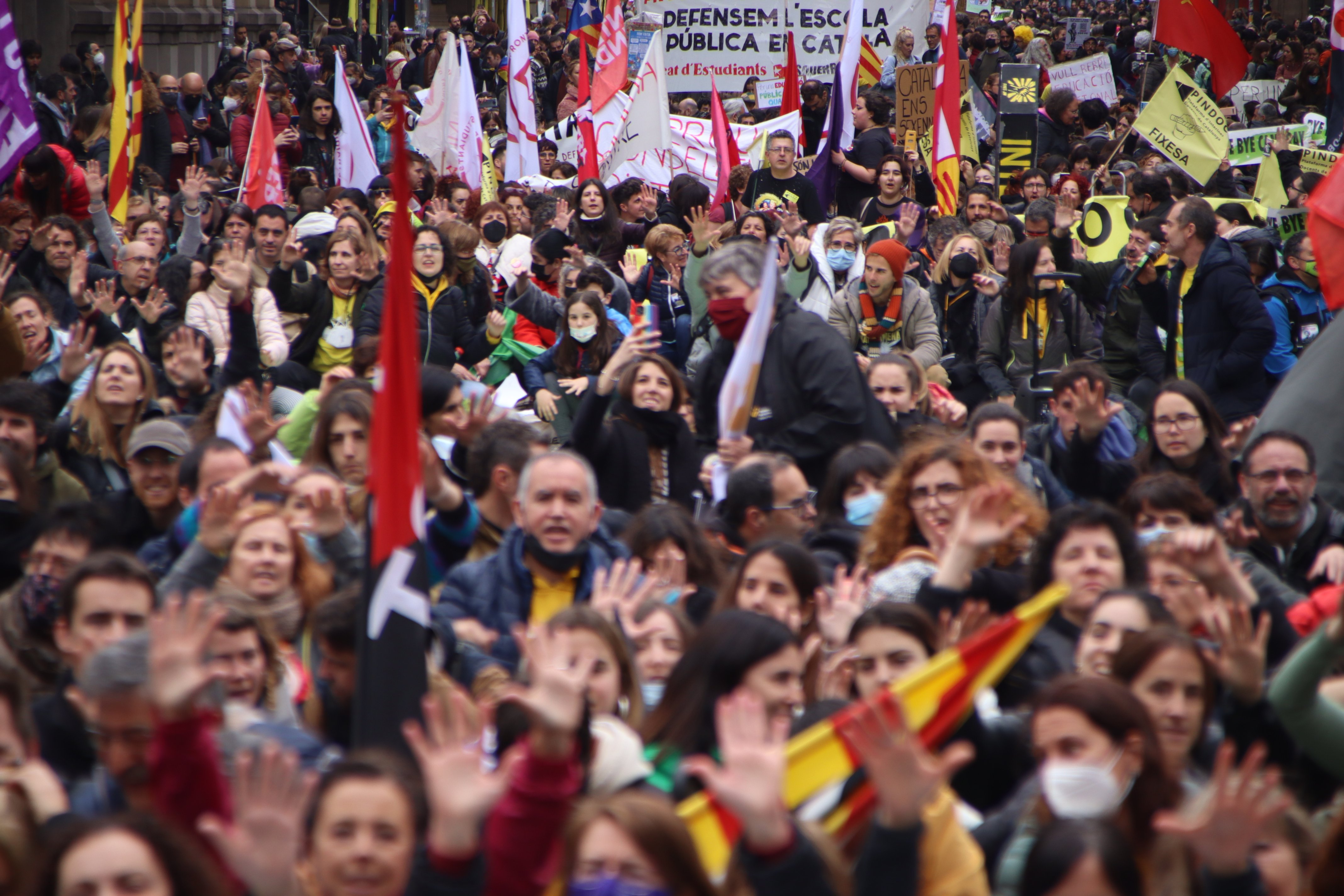Freezing temperatures, but a heated situation on the industrial action front. That's what Catalonia is facing this week as strikes and demonstrations by three different sectors (health, education and taxis) seem set to fill the centre of a wintry Barcelona with protests. The first collective to take the decisions to strike were the Sindicat de Metges doctors' union, with a withdrawal of health services planned for this Wednesday and Thursday, January 25th and 26th, a plan which, due to the failure of negotiations with the Catalan health department, has now been extended for three further days next week, on February 1st, 2nd and 3rd. The rest of the health unions supported the strike called by the doctors, thus calling a protest of the whole health sector. However, the only national Catalan union, the Intersindical, has decided to move its own strike forward one day, to Tuesday, January 24th - in order to avoid its own claims being overshadowed by other collectives. A month after the doctors first put their strike call on the table - while using it to try to reach an agreement with the health authorities- the educational unions decided to resume their protests and also call two days of strike, on January 25th and 26th, affecting schools across Catalonia. Finally there are the taxis: in the middle of a conflict with the Catalan territorial ministry over the regulation of the VTCs - vehicles for hire with driver, Cabify, Uber and the like - the taxi sector has announced that it will join the strike of doctors and teachers on January 25th with a four-hour stoppage of taxis on Barcelona's Gran Via and Passeig de Gràcia, part of which will be closed to traffic.
Strike of doctors, nurses and health personnel
Negotiations between the Metges de Catalunya doctors' union and the health department have intensified in recent days. Although the call to strike was made months ago, the talks did not begin until a week before the strike called by the doctors to denounce both patient care conditions and their employment situation, with a brain-drain of doctors leaving the country to find better jobs in their profession abroad. The negotiations for the moment have been unsuccessful: although the ministry and union say they share the same diagnosis, the doctors demand more specifics. Because of this, they decided to call three further days of strike at the beginning of February.
The ministry has also met with the Mesa Sindical de Sanitat, which brings together different health unions, and although this body has called off the strike on the 25th and 26th due to a formal defect in their strike request, some groups that are part of the Mesa, such as Infermeres de Catalunya and other unions have warned in a statement that the cancellation does not affect the strike on January 24th and 25th (legally called by the Intersindical and to which they had already joined) and have called on workers to participate. The nurses put the focus on a demonstration to be held on Tuesday 24th in Plaça Sant Jaume, where they will be able to carry out the "claims specific to nurses, and thus differentiate themselves from the strike and demonstrations called by the doctors.
Teachers' strike
Coinciding with the doctors' strike, teachers and educational workers are also taking to the streets again in a new strike on January 25th and 26th. After a 2022 marked by the numerous strikes of the educational community, especially in the first half year, protests are now resuming due to the lack of agreements on a series of demands with the Catalan education department. The USTEC teacher called the strike; other unions such as the Intersindical, the CGT, and USOC, among others, have followed it. On January 25th, the unions are to gather in Plaça Sant Jaume, from where they will march to the Parliament of Catalonia. The following day, the 26th, different decentralized actions are planned across Catalan territory and on Saturday 28th January, a unitary rally has also been called in Plaça Sant Jaume.
A week before the strike, USTEC president Iolanda Segura acknowledged that the education department's latest proposal was a step forward with respect to the last negotiations, but still insufficient: "They have made an effort to take a step forward, but there are still many issues that are crucial for us and that are not budget issues, such as the school calendar, which we want to negotiate. Also the pact to stabilize the situation of interim staff so that no one is left on the street."
Taxi sector strike amidst battle over the VTCs
Finally, the last to join this week of intense strike action have been taxi drivers. On Wednesday, January 18th, they met with the Catalan government to call off a stoppage in Barcelona planned to for the January 31th to February 3rd period, but last Friday they announced that they would join the other protest calls to station their vehicles for four hours in Gran Via (between Carrer d'Entença and Bailén) and Passeig de Gràcia (up to Rosselló) in the Catalan capital, which will thus be closed to traffic between 10am and 2pm.
For its part, the territorial ministry has proposed to taxi drivers to create a new taxi law in Catalonia which, in the long term, would replace the current one. The objective, as they have been explaining, is to do "justice" to the sector and respond to the needs of today's society.

